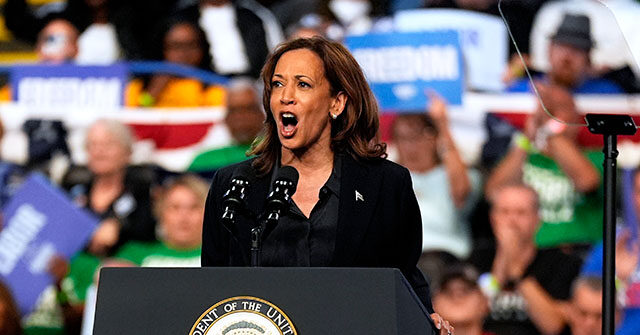A professor at the University of Kansas has sparked controversy after making inflammatory remarks regarding men who refuse to vote for female political candidates, particularly Vice President Kamala Harris. In a recently leaked video that quickly gained traction on social media, the unnamed instructor expressed frustration towards males who he believes do not consider women capable of holding office. His comments, which included a shocking statement suggesting that such men should be shot, led to his placement on administrative leave while the university conducts an investigation. While the identity of the professor has not been disclosed, the content of his remarks has raised significant concerns about the appropriate boundaries of discourse in academic settings.
The comments came during a recorded lecture where the professor articulated his belief that certain men harbor prejudiced views that prevent them from voting for female leaders. “We could line all those guys up and shoot them,” he stated, implying a need for drastic measures against those who purportedly discriminate against women in politics. Following the backlash, the professor attempted to retract his statement, asking to have it removed from the recording and expressing anxiety about the deans finding out about his comments. His immediate contrition indicates a recognition of the harmful nature of his words, whether or not he intended them as hyperbole in a heated discussion about gender equity.
The University of Kansas swiftly responded to the situation by confirming that the professor had been placed on administrative leave pending an investigation. In a statement on X (formerly Twitter), the university acknowledged the inappropriate nature of the professor’s violent rhetoric. This action emphasizes the institution’s commitment to addressing potentially harmful behavior within its academic community while protecting both faculty and student interests. It reflects the ongoing tensions surrounding academic freedom, the limits of free speech, and the importance of maintaining a respectful learning environment.
Subsequently, the university attempted to clarify the professor’s intentions, stating that he was trying to advocate for women’s rights and equality. They conveyed that he deeply regretted his remarks and acknowledged that his expression fell short of appropriately aligning with his advocacy goals. This defense underlines a common challenge within educational contexts: the necessity for educators to effectively communicate their advocacy without veering into unacceptable language or suggestions that may incite violence or intolerance.
In the fallout from these comments, discussions surrounding violence, gender, and political correctness have resurfaced within both academic and public spheres. Critics argue that such extreme expressions—regardless of intent—are damaging to the broader discourse on equality and can overshadow legitimate calls for gender equity in political representation. Furthermore, the incident serves as a reminder of the responsibilities that come with the vocalization of political opinions in educational environments, where students are looking to faculty for guidance and leadership.
As the university moves forward with its investigation, the outcome will be closely watched not only by students and faculty at the University of Kansas but also by those concerned with academic standards and the boundaries of acceptable speech. In an era of heightened awareness regarding issues of gender equality and political representation, this incident may serve as a pivotal case study in navigating the intersection of advocacy, speech, and educational integrity.

